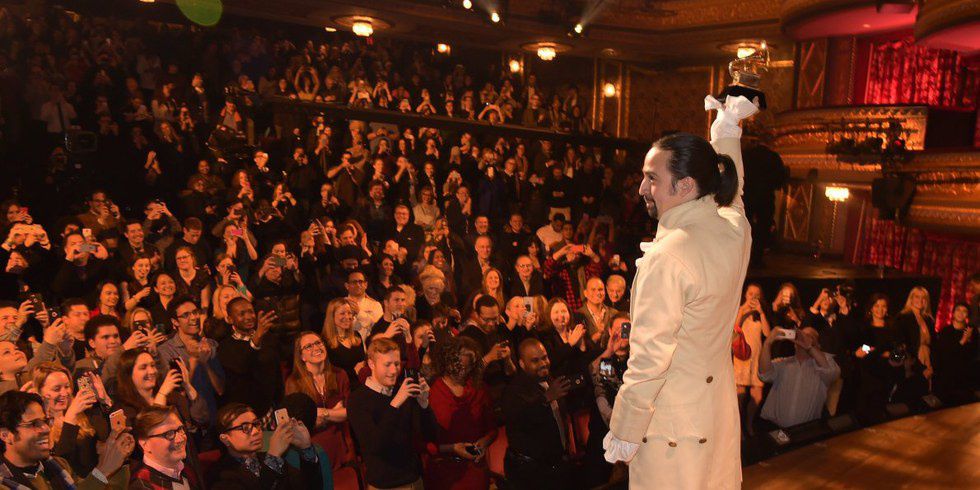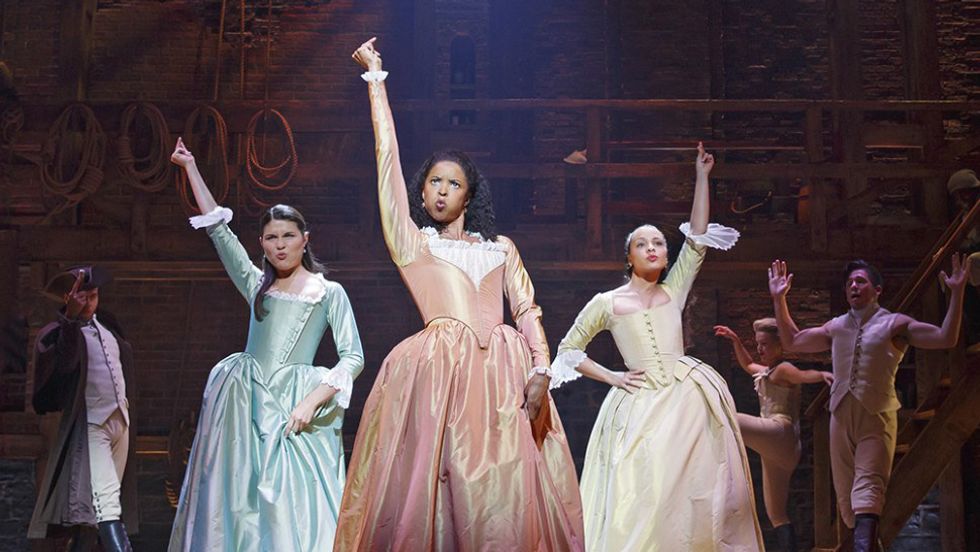Hamilton is centralized around the legacy, planting numerous questions in the minds of the characters and audiences alike:
What stories do we leave behind in the minds of those who knew us, and those who didn’t?
What do we leave behind for others to foster?
In essence: What is a legacy?
“It’s planting seeds in a garden you never get to see”, according to the song "The World Was Wide Enough". The varying definitions of legacy are integrated into the very framework of the musical, from its changing sets to the final stitches of the cast’s period outfits. Hamilton is a story crafted from the product of stories, those shared by the likes of Eliza Hamilton, historians and fanatics. The seemingly fated tale of the young, orphaned immigrant who became one of the most prominent figures in American history has enraptured audiences. For many minorities, Hamilton has been an unabashed show of pride. The intentional diversity of the cast has forcibly placed minorities at the forefront of American history, where they are too often erased.
But such a show can appear frivolous in these dark times.
What’s the point of a musical sharing the glamorized story of a forgotten Founder, when the Founders themselves were actually ignorant at the core? Why encourage pushing for diversity in an age where diversity is a threat to be fought? Why go see a musical when you can resist?
Because the importance of the legacy has been forgotten.
But first: what is a legacy?
A legacy is “something left or handed down by a predecessor”. To most, legacies only concern people with power or another publicized role in society. Why must those of us outside of the limelight and prestige worry about what we leave behind?
Our actions cause ripples. We are all connected, whether we choose to believe so or not. It is impossible to know the full consequences of our lives because it is impossible to know just how many people we influence.
Throughout the musical, Hamilton is obsessed with his legacy. He’s willing to do anything in order to secure his place in the eyes of a winner’s history. And while his obsession was indeed extreme (such as when he suggested that he wanted to die like a martyr in "Right Hand Man"), we need to adopt the sense of urgency Hamilton had for the sake of his legacy. Even on a small scale, what we leave behind—whether it be physical or not—will remain an influence.
Hamilton and Burr’s relationship, the contrasting characters driving the plot of the musical, is defined by the other's actions. Everyone around the two are impacted by their actions, even after Hamilton is gone. This is most evident in the final song of the musical, "Who Lives Who Dies Who Tells Your Story", which describes the influence of Hamilton’s life on the cast of characters. Eliza founds the first orphanage in New York City, Burr’s reputation is forever ruined both in and out of history and Jefferson realizes the genius of Hamilton’s financial plan. The glories and mishaps of Hamilton’s life are on full display. Hamilton was an orphan who grew up surrounded by fatal tragedy, and devoid of much love. His rash, sometimes crazed decisions ruined his livelihood and reputation on all fronts (such as his decision to publish the infamous Reynolds Pamphlet). And despite his flaws, Hamilton was a genius set on placing the newly liberated country on a solid foundation.
On a smaller scale, think upon the courage of kindness. A compliment can lift misery. A donation can turn a life around. A step out of our way to assist could direct someone to a brighter day. Someone else witnessing these acts can feel a sense of joy, or even inspiration. An act of kindness is an act of revolution. You may remain a stranger in the minds of some people you impact, but you would remain their catalyst nonetheless. You plant the seeds of change. That is vital in the current hostility of the political climate looming over America and much of the world right now.
In fact, a modern example on a larger scale is the current political resistance. A suggestion on social media led to the Women’s March, the largest protest in American history. The Women’s March inspired people all around the world to rise up against the rise of Trump and global fascism. Even those who couldn’t go felt the spark of the resistance, and were invigorated by the recognition of their own ability to fight back. The Women’s March fueled the beginning of a movement combating the oppressive forces of our time.
Too often, people live for their own desires. They live for the moment, without consideration for around them. They foster and maintain apathy.
Especially during these dark days, we must remember the urgency of forming our legacies. We do not know our full impact so we must be vigilant in our every action. We must be kind when it is an option, rebellious when it is necessary and strong when our opposition wants us to be weak. The fights for tolerance, diversity, equal rights, environmental protections, education and the arts are just a few of many that prosper through legacy. A legacy does not have to be remembered by all of mankind to be meaningful. The smallest of meaningful actions makes for a meaningful legacy regardless of that legacy's immediate breadth.
So if there is one lesson you must take from Hamilton, be it this:
A legacy truly is planting seeds in a garden that you never get to see.



























